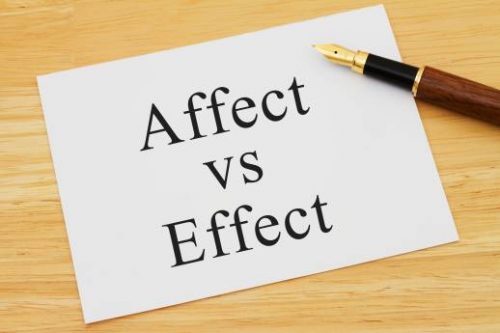Certain vocabulary is confusing. Some are similar to others. How about affect and effect? Do you know the difference between the two of them? Read this article to find out the key differences.
| Affect | Effect |
| A verb. | A noun. |
| Means “to influence something”. | Means “the result of something”. |
| Usually refers to emotions. | Refers to results of action or a series of actions. |
| Has more than two forms. | Has only two forms: basic and plural. |

The main difference between affect and effect is that affect is a verb meaning to influence something, while effect is a noun meaning the result of something. We can see in these sentences below:
- The earthquake affected the whole of central Italy.
- The effect of the earthquake is still being felt in the area.
Affect is a psychological term that refers to the experience of emotion. Affect refers to the subjective experience of emotion. It can be described as the feeling tone of an emotion, or the emotional reaction that is experienced.
Affect can be positive or negative, and it can be experienced as a single emotion or as a combination of emotions.
Affect is often confused with mood, which refers to the overall tone of an individual’s emotions. Mood can be positive or negative, but it is not limited to a single emotion.
Effect is the result of an action or a series of actions.
In physics, the result of a force is called an effect. In grammar, the result of a verb is called an effect.
For example, when you speak, the sound of your voice is an effect. When you write, the marks on the paper are an effect.
Effect doesn’t have to be something bad. It can be something good, too. For example, when you eat healthy food, there is a good effect. When you exercise, you feel good effects.
We use affect when we want to talk about what we do to something, and we use effect when we want to talk about what happens as a result. For example, if I turn on a light switch, the effect is that the light comes on; if I feel sad afterward, it means that turning on the light affects me (making me feel sad).
Because it is a verb, affect has several forms. The basic form of the verb is to affect. To affect something is to have an effect on it. The continuous form of the verb is to be affecting. To be affecting something is to be having an effect on it.
The past form of the verb is affected and the passive form of the verb is to be affected.
On the other hand, because it is a noun, effect only has two forms. The basic form of the noun is effect, while the plural form of the noun is effects.





